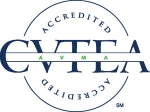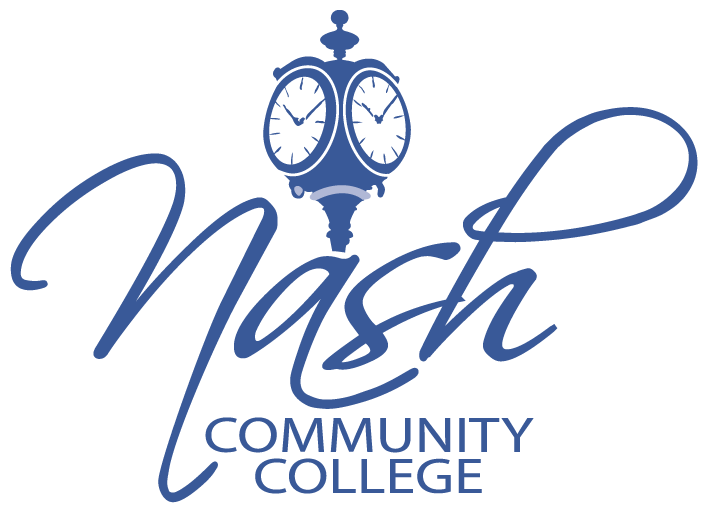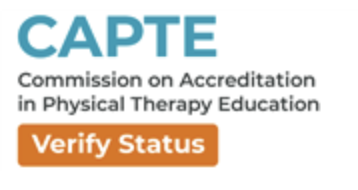Nash Community College is thrilled to announce its upcoming Open House event, an exciting opportunity for prospective students to explore the college’s offerings, meet faculty and staff, and discover the resources designed to help students succeed in their educational journey. This event will take place on April 5 from 9 a.m. to 1 p.m. and […]
Overview
The Practical Nursing curriculum prepares individuals with the knowledge and skills to provide nursing care to children and adults.
What you'll learn
Students will participate in assessment, planning, implementing, and evaluating nursing care.
Graduates are eligible to apply to take the National Council Licensure Examination (NCLEX-PN) which is required for practice as a Licensed Practical Nurse.
Career Opportunities
Employment opportunities include hospitals, rehabilitation/long-term care/home health facilities, clinics, and physician’s offices.
Only letter grades of “C” or higher in non-nursing courses and nursing (NUR) courses with a grade of “B” or higher will count toward completion of the Practical Nursing diploma.
Major Core Courses
- NUR 101 Practical Nursing I
- NUR 102 Practical Nursing II
- NUR 103 Practical Nursing III
Other Major Courses
- BIO 168 Anatomy & Physiology I
- BIO 169 Anatomy & Physiology II
General Education Courses
- ENG 111 Writing and Inquiry
- MAT 171 Precalculus Algebra
Overview
The Medical Assisting curriculum prepares multi-skilled healthcare professionals qualified to perform administrative, clinical, and laboratory procedures.
What You'll Learn
Coursework includes instruction in scheduling appointments, coding and processing insurance accounts, handling billing and collections and understanding computer operations; covers assisting with examinations/treatments, performing routine laboratory procedures, understanding electrocardiography and performing supervised medication administration; and examines ethical/legal issues associated with patient care.
Career Opportunities
Graduates of CAAHEP-accredited medical assisting programs are eligible to sit for the American Association of Medical Assistants Certification Examination to become Certified Medical Assistants. Employment opportunities include physicians’ offices, health maintenance organizations, health departments, and hospitals.
Only letter grades of “C” or higher in non-medical assisting courses and grades of “B” or higher in medical assisting (MED) courses will count toward completion of the Medical Assisting degree or diploma.
Major Core Courses I (require grade of “B” or higher)
- MED 110 Orientation to Medical Assisting
- MED 130 Administrative Office Procedures I
- MED 131 Administrative Office Procedures II
- MED 140 Exam Room Procedures I
- MED 150 Laboratory Procedures I
- MED 260 MED Clinical Practicum
Major Core Courses II (require grade of “C” or higher)
- BIO 163 Basic Anatomy & Physiology
- OST 141 Med Office Terms I
- OST 142 Med Office Terms II
- OST 149 Medical Legal Issues
Other Major Courses I (require grade of “B” or higher)
- MED 240 Exam Room Procedures II
- MED 262 Clinical Perspectives
- MED 270 Symptomatology
- MED 272 Drug Therapy
Other Major Courses II (require grade of “C” or higher)
- MED 274 Diet Therapy/Nutrition or OST 247 Procedure Coding and OST 248 Diagnostic Coding
- OST 148 Medical Coding, Billing & Insurance
General Education Courses
- COM 110 Intro. to Communications
- ENG 111 Writing and Inquiry
- HUM/FA Humanities/Fine Arts Core Elective
- MAT 143 Quantitative Literacy
- PSY 150 General Psychology
Other Required Courses
- ACA 122 University Transfer Success
HUM/FA Elective (Select 1 course)
ART 111, ART 114, ART 115, DRA 111, ENG 231, ENG 232, ENG 233, ENG 241, ENG 242, ENG 261, ENG 262, HUM 110, HUM 115, HUM 120, HUM 130, HUM 150, HUM 160, HUM 180, HUM 211, HUM 212, MUS 110, MUS 112, PHI 215, PHI 220, PHI 230, PHI 240, REL 110, REL 211, REL 212
Major Core Courses
- BIO 163 Basic Anatomy & Physiology
- MED 110 Orientation to Medical Ass
- MED 130 Administrative Office Procedures I
- MED 131 Administrative Office Procedures II
- MED 140 Exam Room Procedures I
- MED 150 Laboratory Procedures I
- MED 260 MED Clinical Practicum
- OST 141 Med Office Terms I
- OST 142 Med Office Terms II
- OST 149 Medical Legal Issues
Other Major Courses
- MED 262 Clinical Perspectives
General Education Courses
- ENG 111 Writing and Inquiry
- PSY 150 General Psychology
Other Required Courses
- ACA 122 University Transfer Success
- Medical Assisting
The Nash Community College Medical Assisting Diploma program is accredited by the Commission on Accreditation of Allied Health Education Programs (www.caahep.org) upon the recommendation of the Medical Assisting Education Review Board.
Graduate Outcomes
| MED Graduate Outcomes | 5-Year Average (August 2019 – July 2023) | ||
|---|---|---|---|
| Program Completion | Admission Year 2023 | 60% | 60% |
| National Certification Exam Pass Rate | Graduation Year 2023 | 80% | 82.14% |
| Job Placement | Graduation Year 2023 | 100% | 94.74% |
A minimum grade of “C” is required for non-MED courses and a minimum grade of “B” is required for MED-courses identified in the Medical Assisting plan of study.
Contact

Amber Greer
Overview
The Medical Sonography curriculum provides knowledge and clinical skills in the application of high frequency sound waves to image internal body structures.
What You'll Learn
Coursework includes physics, cross-sectional anatomy, and abdominal, introductory vascular and obstetrical/gynecological sonography. Competencies are attained in identification of normal anatomy and pathological processes, use of equipment, observation of fetal growth and development, integration of related imaging, and demonstration of patient interaction skills.
Career Opportunities
Graduates of accredited programs may be eligible to take examinations in ultrasound physics and instrumentation and specialty examinations administered by the American Registry of Diagnostic Medical Sonographers and find employment in clinics, physicians’ offices, mobile services, hospitals, and educational institutions.
This program has special admissions requirements. These requirements are in addition to those completed for the College. Please visit www.pittcc.edu to review the requirements (click on Health Sciences > Admissions). Students must apply and be formally admitted to the program to take SON courses.
Degree granted from Pitt Community College.
Major Core Courses
- *SON 110 Introduction to Sonography
- *SON 111 Sonographic Physics
- *SON 120 SON Clinical Education I
- *SON 121 SON Clinical Education II
- *SON 130 Abdominal Sonography I
- *SON 131 Abdominal Sonography II
- *SON 140 Gynecologic Sonography
- *SON 220 SON Clinical Education III
- *SON 221 SON Clinical Education IV
- *SON 222 Selected SON Clinical Ed
- *SON 225 Case Studies
- *SON 241 Obstetrical Sonography I
- *SON 242 Obstetrical Sonography II
- *SON 250 Vascular Sonography
- *SON 289 Sonographic Topics
General Education
- BIO 163 Basic Anatomy & Physiology
- ENG 111 Writing and Inquiry
- ENG 112 Argument-Based Research
- PHY 110 Conceptual Physics
- Humanities Elective
- MAT 121 Algebra/Trigonometry
- PSY 150 General Psychology
- HUM 115 or PHI 240
Other Required Courses
- *ACA 111 College Student Success or ACA 122 University Transfer Success
Contact
Overview
The Nuclear Medicine Technology curriculum provides the clinical and didactic experience necessary to prepare students to qualify as entry-level nuclear medicine technologists.
What You'll Learn
Students will acquire the knowledge and skills necessary to properly perform clinical procedures. These skills include patient care, use of radioactive materials, operation of imaging and counting instrumentation, and laboratory procedures.
Career Opportunities
Graduates may be eligible to apply for certification/registration examinations given by the Nuclear Medicine Technology Certification Board and the American Registry of Radiologic Technologists.
This program has special admissions requirements. These requirements are in addition to those completed for the College. Please visit www.pittcc.edu to review the requirements (click on Health Sciences > Admissions). Students must apply and be formally admitted to the Medical Sonography program to take any NMT and PET courses.
Degree granted from Pitt Community College.
Major Core Courses
- *NMT 110 Intro to Nuclear Medicine
- *NMT 110A Intro Nuclear Medicine Lab
- *NMT 126 Nuclear Physics
- *NMT 132 Overview-Clinical Nuclear Med
- *NMT 134 Nuclear Pharmacy
- *NMT 136 Health Physics
- *NMT 211 NMT Clinical Practice I
- *NMT 212 Procedures for Nuclear Med I
- *NMT 212A Procedures for Nuclear Med Lab
- *NMT 214 Radiobiology
- *NMT 215 Non-Imaging Instrument
- *NMT 218 Computers in Nuclear Med
- *NMT 221 NMT Clinical Practice II
- *NMT 222 Procedures for Nuclear Med II
- *NMT 222A Procedures for Nuclear Med Lab
- *NMT 289 Nuclear Med Tech Topics
- *PET 110 Intro to PET
- *PET 235 Cross-Sectional Anatomy
General Education
- ACA 111 College Student Success or ACA 122 University Transfer Success
- ENG 111 Writing and Inquiry
- ENG 112 Argument-Based Research
- MAT 121 Algebra/Trigonometry
- PSY 150 General Psychology
- *HSC 110 Orientation to Health Careers
- BIO 163 or BIO 168 and BIO 169
- HUM 115 or PHI 240
Contact

Renee Martinez
Overview
The Physical Therapist Assistant curriculum prepares graduates to work in direct patient care settings under supervision of physical therapists. Assistants work to improve or restore function by alleviation or prevention of physical impairment and perform other essential activities in a physical therapy department.
What you'll learn
Course work includes normal human anatomy and physiology, the consequences of disease or injury, and physical therapy treatment of a variety of patient conditions affecting humans throughout the lifespan.
Career Opportunities
Graduates may be eligible to take the licensure examination administered by the NC Board of Physical Therapy Examiners. Employment is available in general hospitals, rehabilitation centers, extended care facilities, specialty hospitals, home health agencies, private clinics and public school systems.
Only letter grades of “C” or higher in non-PTA courses and PTA courses with a grade of “B” or higher will count toward completion of the Physical Therapist Assistant degree.
Accreditation Status
The Physical Therapist Assistant Program at Nash Community College is accredited by the Commission on Accreditation in Physical Therapy Education (CAPTE), 3030 Potomac Ave., Suite 100, Alexandria, Virginia 22305-3085; telephone: 703-706-3245; email: accreditation@apta.org; website: http://www.
If needing to contact the program/institution directly, please contact 252-451-8481 or email almilks594@nashcc.edu.
Major Core Courses
- PTA 110 Introduction to Phy. Therapy
- PTA 125 Gross & Functional Anatomy
- PTA 135 Pathology
- PTA 145 Therapeutic Procedures
- PTA 155 PTA Clinical I
- PTA 185 PTA Clinical II
- PTA 212 Health Care Resources
- PTA 215 Therapeutic Exercise
- PTA 222 Professional Interactions
- PTA 225 Introduction to Rehabilitation
- PTA 235 Neurological Rehabilitation
- PTA 245 PTA Clinical III
- PTA 255 PTA Clinical IV
Other Major Courses
- BIO 168 Anatomy and Physiology I
- BIO 169 Anatomy and Physiology II
- CIS 110 Introduction to Computers
General Education
- COM 231 Public Speaking
- ENG 111 Writing and Inquiry
- MAT 171 Precalculus Algebra
- PSY 150 General Psychology
- HUM/FA Humanities/Fine Arts Elective
Other Required Courses
- ACA 122 University Transfer Success
HUM/FA Elective (Select 1 course)
ART 111, ART 114, ART 115, DRA 111, ENG 231, ENG 232, ENG 233, ENG 241, ENG 242, ENG 261, ENG 262, HUM 110, HUM 115, HUM 120, HUM 130, HUM 150, HUM 160, HUM 180, HUM 211, HUM 212, MUS 110, MUS 112, PHI 215, PHI 220, PHI 230, PHI 240, REL 110, REL 211, REL 212
Please contact Health Science Advising at healthsciencesadvising@nashcc.edu to determine if you have met the eligibility requirements to apply to the program by the annual June 2 application deadline.
Please contact Health Science Admissions Coordinator at healthsciencesadmissions@nashcc.edu to receive a program application when all eligibility requirements have been met.
Annual Application period September 1 – June 2.
You may file complaints with CAPTE.
Program Outcomes
| 2-Year Average (2023-2024) | |
|---|---|
| Acceptance Rate | 43.0% |
| Program Completion Overall | 73.9% |
| Graduation Rate* (CAPTE) | 89.7% |
| Licensure 1st-take Pass | 86.8% |
| Licensure Overall | 93.3% |
| Employment Rate (within one-year of graduation based on graduate responses) | 100% |
| Average Exam Score (National Avg. 654) | 647 |
| *Graduation rate does not reflect withdrawal from the program due to non-academic or personal reasons. |
Contact

Andrea Milks
Overview
This curriculum is designed to prepare individuals to assist veterinarians in preparing animals, equipment, and medications for examination and surgery; collecting specimens; performing laboratory, radiographic, anesthetic, dental procedures; assisting in surgery; and providing proper husbandry of animals and their environment.
What you'll learn
Course work includes instruction in veterinary anatomy, nutrition, parasitology, pathology, physiology, radiology, terminology, zoology, office practices, laboratory techniques, dentistry, and small and large animal clinical practices.
Career Opportunities
Graduates of accredited programs may be eligible to take state and national examinations administered by the North Carolina Veterinary Medical Board. Graduates may be employed in veterinary clinics; diagnostic, research, or pharmaceutical laboratories; zoos; academic institutions; or other areas associated with animal care.
Only letter grades of “C” or higher in non-VET prefix courses and VET courses with a grade of “B” or higher will count toward completion of the Veterinary Medical Technology (VMT) degree.
Major Core Courses
- VET 110 Animal Breeds & Husbandry
- VET 120 Vet Anatomy & Physiology
- VET 121 Veterinary Medical Terminology
- VET 123 Veterinary Parasitology
- VET 125 Veterinary Diseases I
- VET 126 Veterinary Diseases II
- VET 131 Veterinary Laboratory Tech I
- VET 133 Veterinary Clinical Practice I
- VET 137 Veterinary Office Practices
- VET 211 Veterinary Laboratory Tech II
- VET 212 Veterinary Laboratory Tech III
- VET 213 Veterinary Clinical Practice II
- VET 214 Veterinary Clinical Practice III
- VET 215 Veterinary Pharmacology
- VET 217 Large Animal Clinical Practice
- VET 237 Animal Nutrition
- WBL 112 Work-Based Learning I
Other Major Courses
- CHM 130 Gen, Org, & Biochemistry
- CHM 130A Gen, Org, & Biochem (Lab)
General Education
- ENG 110 Freshman Composition or ENG 111 Writing and Inquiry
- COM Elective (110, 120 or 231)
- HUM/FA Humanities/Fine Arts Elective
- MAT 171 Precalculus Algebra
- PSY 150 General Psychology
Other Required Courses
- ACA 122 University Transfer Success
HUM/FA Elective (Select 1 course)
ART 111, ART 114, ART 115, DRA 111, ENG 231, ENG 232, ENG 233, ENG 241, ENG 242, ENG 261, ENG 262, HUM 110, HUM 115, HUM 120, HUM 130, HUM 150, HUM 160, HUM 180, HUM 211, HUM 212, MUS 110, MUS 112, PHI 215, PHI 220, PHI 230, PHI 240, REL 110, REL 211, REL 212
 The Veterinary Medical Technology program is accredited by the Committee on Veterinary Technician Education and Activities (CVTEA) of the American Veterinary Medical Association (AVMA) as a program for educating veterinary technicians. 1931 North Meacham Road, Suite 100, Schaumburg, IL 60173-4360, 800-248-2862 www.avma.org.
The Veterinary Medical Technology program is accredited by the Committee on Veterinary Technician Education and Activities (CVTEA) of the American Veterinary Medical Association (AVMA) as a program for educating veterinary technicians. 1931 North Meacham Road, Suite 100, Schaumburg, IL 60173-4360, 800-248-2862 www.avma.org.
Veterinary Technician National Exam (VTNE) 3-year Pass Rate
Academic Cycle | January 1, 2022 – |
Number of first-time candidates that have taken the VTNE | 33 |
Three-year VTNE pass percentage (%) | 54.5% |
Contact

Gail Harrell
Overview
The Dental Hygiene curriculum provides individuals with the knowledge and skills to access, plan, implement, and evaluate dental hygiene care for the individual and the community.
What You'll Learn
Students will learn to prepare the operatory, take patient histories, note abnormalities, plan care, teach oral hygiene, clean teeth, take X-rays, apply preventive agents, complete necessary chart entries, and perform other procedures related to dental hygiene care.
Career Opportunities
Graduates of this program may be eligible to take national and state/regional examinations for licensure required to practice dental hygiene.
Employment opportunities include dental offices, clinics, schools, public health agencies, industry, and professional education.
Achievement of competence in the following basic skills courses must be met:
- Students taking CHM 130 at Nash are also required to take CHM 130A (lab)
- Reading and Writing Skills – RED 090 or DRE 097
- Math Skills – MAT 070 or DMA 050
- PSY 150 and SOC 210 can be taken to substitute SOC 240
This program has special admissions requirements. These requirements are in addition to those completed for the College. Please visit www.halifaxcc.edu to review the requirements (click on For Students >Programs of Study > Dental Hygiene). Students must apply and be formally admitted to the program to take any DEN courses. Degree granted from Halifax Community College.
Major Core Courses
- *DEN 110 Orofacial Anatomy
- *DEN 111 Infection/Hazard Control
- *DEN 112 Dental Radiography
- *DEN 120 Dental Hyg Preclinic Lec
- *DEN 121 Dental Hygiene Preclin Lab
- *DEN 123 Nutrition/Dental Health
- *DEN 124 Periodontology
- *DEN 125 Dental Office Emergencies
- *DEN 130 Dental Hygiene Theory I
- *DEN 131 Dental Hygiene Clinic I
- *DEN 140 Dental Hygiene Theory II
- *DEN 141 Dental Hygiene Clinic II
- *DEN 220 Dental Hygiene Theory III
- *DEN 221 Dental Hygiene Clinic III
- *DEN 222 General & Oral Pathology
- *DEN 223 Dental Pharmacology
- *DEN 224 Materials and Procedures
- *DEN 230 Dental Hygiene Theory IV
- *DEN 231 Dental Hygiene Clinic IV
- *DEN 232 Community Dental Health
- *DEN 233 Professional Development
General Education
- BIO 168 Anatomy and Physiology I
- BIO 169 Anatomy and Physiology II
- BIO 175 General Microbiology
- CHM 130 General Organic & Biochemistry
- ENG 111 Expository Writing
- ENG 114 Prof. Research & Reporting or ENG 112 Writing/Research in Disciplines
- COM 231 Public Speaking
- PSY 150 General Psychology
- SOC 210 Intro to Sociology or *SOC 240 Social Psychology
- HUM 115 Critical Thinking
Contact
Overview
The Social and Human Services (General Studies) curriculum prepares students for entry-level positions in institutions and agencies that provide social, community, and educational services. Along with core courses, students take courses that prepare them for specialization in specific human service areas.
What You'll Learn
Students will take courses from a variety of disciplines. Emphasis in core courses is placed on development of relevant knowledge, skills, and attitudes in human services. Fieldwork experience will provide opportunities for application of knowledge and skills learned in the classroom.
Career Opportunities
Graduates should qualify for positions in mental health, child care, family services, social services, rehabilitation, correction, and educational agencies. Graduates choosing to continue their education may select from a variety of transfer programs at senior public and private institutions.
Major Core Courses
- HSE 110 Intro. to Human Services
- HSE 123 Interviewing Techniques for Human Services
- HSE 210 Diversity, Ethics and Trends
- HSE 212 Group Dynamics
- HSE 225 Crisis and Intervention Principles
- GRO 220 Social Aspects of Aging
- HSE 223 Counseling Theories and Skills
Other Major Courses
- GRO 120 Gerontology
- HSE 220 Case Management
- PSY 281 Abnormal Psychology
- SWK 110 Introduction to Social Work
- SWK 113 Cultural Competency Diversity
General Education
- COM 110 Introduction to Communication or COM 120 Intro to Interpersonal Communication or COM 140 Intro to Intercultural Communication or COM 231 Public Speaking
- ENG 111 Writing and Inquiry
- HUM/FA Humanities/Fine Art Elective
- MAT 143 Quantitative Literacy or MAT 152 Statistical Methods I
- BIO 110 Principles of Biology
- PSY 150 General Psychology
Concentration Requirements
- DDT 110 Intellectual/Devel. Disabilities
- HSE 227 Children and Adolescents in Crisis
- MHA 140 Intro to Mental Health
- SAB 110 Intro to Addiction and Recovery
- SAB 135 Addictive Process
Other Required Courses
- ACA 122 University Transfer Success
HUM/FA Elective (Select 1 course)
ART 111, ART 114, ART 115, DRA 111, ENG 231, ENG 232, ENG 233, ENG 241, ENG 242, ENG 261, ENG 262, HUM 110, HUM 115, HUM 120, HUM 130, HUM 150, HUM 160, HUM 180, HUM 211, HUM 212, MUS 110, MUS 112, PHI 215, PHI 220, PHI 230, PHI 240, REL 110, REL 211, REL 212
CASE MANAGEMENT CERTIFICATE – C45380
- HSE 110 Intro to Human Services
- HSE 123 Interviewing Techniques
- HSE 125 Counseling
- HSE 220 Case Management
- PSY 150 General Psychology
Contact

Renee Martinez
Overview
The Social and Human Services: Addiction and Recovery Studies concentration prepares students to assist in drug and alcohol counseling, prevention-oriented educational activities, rehabilitation with recovering clients, management community-based programs, counseling in residential facilities, and pursuit of four-year degrees.
What You'll Learn
Coursework includes classroom and experiential activities oriented toward an overview of chemical dependency, psychological/sociological process, the 12 Core Functions, intervention techniques with individuals in groups, and follow-up activities with recovering clients.
Career Opportunities
Graduates should qualify for positions as substance abuse counselors, DUI counselors, halfway house workers, residential facility employees, and substance education specialists. With educational and clinical experiences, graduates can obtain certification by the North Carolina Substance Abuse Board.
Work Based Learning
Work-Based Learning (WBL) is required for all students enrolled in a Social and Human Services/Addiction and Recovery Studies degree program. WBL provides a work-based learning experience with a college-approved employer in an area related to the student’s program of study. Emphasis is placed on integrating classroom learning with related work experience.
Major Core Courses
- HSE 110 Intro. to Human Services
- HSE 123 Interviewing Techniques for Human Services
- HSE 210 Diversity, Ethics and Trends
- HSE 212 Group Dynamics
- HSE 223 Counseling Theories and Skills
- HSE 225 Crisis and Intervention Principles
- HSE 220 Case Management
Other Major Courses
- GRO 120 Intro to Gerontology
- GRO 220 Social Aspects of Aging
- SWK 110 Introduction to Social Work
- SWK 113 Cultural Competency Diversity
- WBL 111 Work Based Learning I
- WBL 115 Work Based Learning Seminar I
General Education
- COM 110 Introduction to Communication or COM 120 Intro to Interpersonal Communication or COM 231 Public Speaking
- ENG 111 Writing and Inquiry
- HUM/FA Humanities/Fine Art Elective
- MAT 143 Quantitative Literacy or MAT 152 Statistical Methods I
- BIO 110 Principles of Biology
- PSY 150 General Psychology
Concentration Requirements
- SAB 110 Intro to Addiction and Recovery
- SAB 120 Intake and Assessment
- SAB 135 Addictive Process
- SAB 210 Addiction and Recovery Counseling
- SAB 240 Diversity, Ethics and Trends in Addiction and Recovery
Other Required Courses
- ACA 122 University Transfer Success
HUM/FA Elective (Select 1 course)
ART 111, ART 114, ART 115, DRA 111, ENG 231, ENG 232, ENG 233, ENG 241, ENG 242, ENG 261, ENG 262, HUM 110, HUM 115, HUM 120, HUM 130, HUM 150, HUM 160, HUM 180, HUM 211, HUM 212, MUS 110, MUS 112, PHI 215, PHI 220, PHI 230, PHI 240, REL 110, REL 211, REL 212
CASE MANAGEMENT CERTIFICATE – C45380
- HSE 110 Intro to Human Services
- HSE 123 Interviewing Techniques
- HSE 125 Counseling
- HSE 220 Case Management
- PSY 150 General Psychology
Contact




